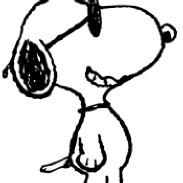SHEVI’IS FOOD PERMITTED FOR YOUR ANIMALS
ויקרא פרק כה ז וְלִבְהֶמְתְּךָ וְלַחַיָּה אֲשֶׁר בְּאַרְצֶךָ תִּהְיֶה כָל-תְּבוּאָתָהּ לֶאֱכֹל:
מסכת פסחים דף נב/ב אמר קרא ולבהמתך ולחיה אשר בארצך כל זמן שחיה אוכלת מן השדה האכל לבהמה שבבית כלה לחיה אשר בשדה כלה לבהמתך מן הבית
Food is only permitted to the owner of the field for the family’s consumption while the food is available in the fields for the wild animals to eat; after that time, a person must destroy any such stored food. This concept is derived from the cited verse since the word לבהמתך is extra. The base law is concerning the undomesticated animals must have access; the domesticated animals are the owner’s responsibility to feed. However, the extra word equates the domesticated animal to the undomesticated animal limiting the time one can feed the domesticated animal to the same time period that the type of food is available to the undomesticated animal. And the same law would apply to the human consumption of such food.
STRIGENCY OF SHEVI’IS
ויקרא פרק כה יג בִּשְׁנַת הַיּוֹבֵל הַזֹּאת תָּשֻׁבוּ אִישׁ אֶל-אֲחֻזָּתוֹ:
מסכת קידושין דף כ/א רבי יוסי ברבי חנינא אומר בא וראה כמה קשה אבקה של שביעית אדם נושא ונותן בפירות שביעית לסוף מוכר את מטלטליו שנאמר בשנת היובל תשובו איש אל אחוזתו וסמיך ליה וכי תמכרו ממכר לעמיתך או קנה מיד עמיתך דבר הנקנה מיד ליד לא הרגיש לסוף מוכר את שדותיו שנאמר כי ימוך אחיך ומכר מאחוזתו לא באת לידו עד שמוכר את ביתו שנאמר כי ימכור בית מושב עיר חומה מאי שנא התם דאמר לא הרגיש ומאי שנא הכא דאמר לא באת לידו כדרב הונא דאמר רב הונא כיון שעבר אדם עבירה ושנה בה הותרה לו הותרה לו סלקא דעתך אלא נעשית לו כהיתר לא באת לידו עד שמוכר את בתו שנאמר וכי ימכור איש את בתו לאמה ואע"ג דבתו לא כתיבא בהאי ענינא הא קמ"ל ניזבין אינש ברתיה ולא ניזיף בריביתא מאי טעמא ברתיה מגרעא ונפקא והא מוספא ואזלא לא באת לידו עד שלוה ברבית שנא' וכי ימוך אחיך ומטה ידו עמך וסמיך ליה אל תקח מאתו וגו' לא באת לידו עד שמוכר את עצמו שנאמר וכי ימוך אחיך ונמכר לך לא לך אלא לגר שנאמר לגר ולא לגר צדק אלא לגר תושב שנאמר גר תושב משפחת גר זה עובד כוכבים כשהוא אומר לעקר זה הנמכר לעבודת כוכבים עצמה
The main part of the prohibition of Shvi’is is working the land. The lav of selling produce of Shvi’is is only a small, side portion of the laws, and thus called אבק.
The question is why the harsh punishments for transgressing this lav, whereas other “stricter” transgressions do not have such extensive punishments. Possible one could explain like the Gemara (Sanhedrin 39a) explains the reason for the law of Shvi’is. HaShem says to the Jewish people, plant for six years and let the land alone for the seventh year in order that you should know that the land is Mine. Toras Cohanim states the HaShem says do not let this be bad in your eyes for you are really strangers and temporary dwellers in this land. Thus, anyone who treats the laws of Shvi’is lightly is as if not admitting the land is not owned by HaShem and brings produce at His command. Thus, one is saying that his own power causes the produce, and denies a main principal of G-d’s Providence in the world and is subject to the harsh punishments.
Friday, May 9, 2008
Subscribe to:
Post Comments (Atom)

No comments:
Post a Comment